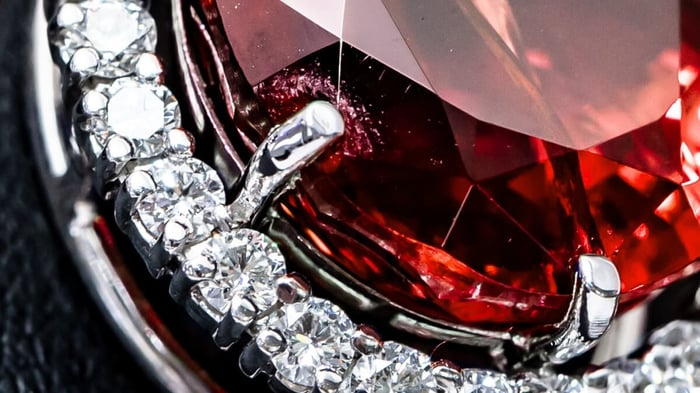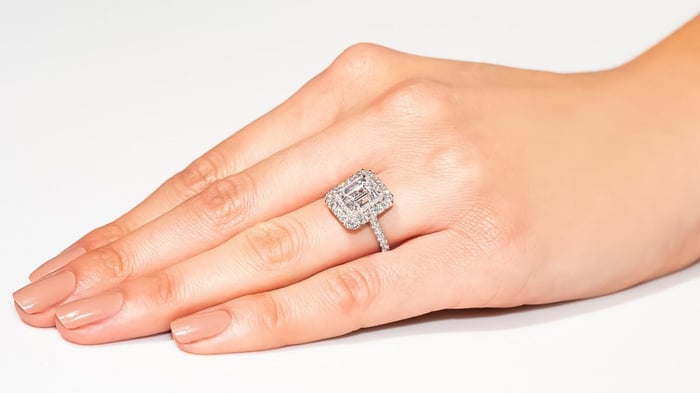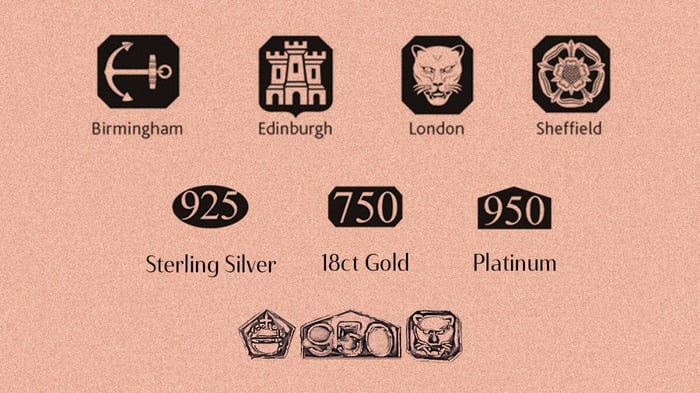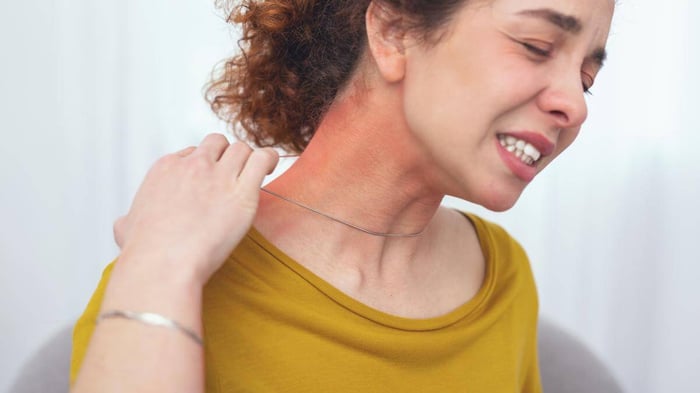How You Can Keep Your Jewellery Safe
Your jewellery is valuable from the perspective of its purchase cost and its emotional value. Each piece of jewellery comes with memories of occasions and people, that is why you need to prevent damage to your precious jewellery items.

Protection of your jewellery from damage has four levels:
1) Buying the right jewellery for your needs and lifestyle
2) Maintaining your jewellery so that it is not damaged by everyday wear
3) Keeping your jewellery stored correctly
4) Insuring your jewellery so that if it is damaged or lost, it can be replaced.
Match Your Jewellery To Your Lifestyle
Although diamonds are the hardest natural element, they can be damaged by impacts such as being dropped onto a hard floor. Other precious stones are more fragile. Even the metals used to make your treasured jewellery can be damaged. Gold and silver are very soft and can become bent out of shape, worn, or even broken. The best advice that a professional jeweller can give to a client is to choose jewellery that is a good match for the owner’s lifestyle.
Here are a few tips that will help you to choose jewellery that can best withstand your lifestyle.
1) If you plan to wear your jewellery every day, then choose a piece that will enable you to feel secure in the places that you usually visit.
2) If you do work with your hands, such as a healthcare worker or in a laboratory, choose a ring that has a setting that is robust enough to withstand the occasional knock without opening up the claw holding the gem in place.
Baguette & Round Diamond Bangle 3.50ct G/SI Diamond in 18k Yellow Gold

£5,517.00
£8,647.00
Three and a half carats of ethically sourced G/SI quality diamonds, hand-cut in both the round and baguette style then securely set, bring an effervescent sparkle to this confidently styled bangle in lustrous 18k yellow gold, an exceptional piece of… read more
3 If you work in a dirty environment such as landscaping, in a kitchen or in housekeeping, look out for jewellery that does not have nooks and crannies that can hold dirt. For the same reason, you might want to choose metals that do not have engraving.

4) If you often wear gloves, make sure that any ring you choose can fit comfortably inside your gloves without danger of bending the setting.
5) If you enjoy sports, then look out for jewellery that can withstand the occasional knock from a ball or fall to the floor. Platinum is an excellent choice for the setting of a ring as it is sturdier than gold or silver while retaining the precious metal look and feel that you need.
6) Ask the advice of your jeweller to help select the best ring, or other jewellery, to fit your lifestyle.
Take Care Of Your Treasured Jewellery
All jewellery needs maintenance to protect its appearance and make sure that it does not break. Some maintenance you can carry out for yourself, but other work needs the professional care of a jewellery technician.
Different jewellery has different needs when you buy your ring, bracelet, brooch or other jewellery, check with the seller for their advice on how to care for your treasured pieces. Here are some general guidelines that you should follow to keep your jewellery looking its best and to keep it from harm.
1) When you buy your diamond engagement ring or other fine jewellery, that is the start of your relationship with your jeweller! Your jeweller can provide professional cleaning and preventive maintenance that will keep your treasures looking their best and damage-free for years to come.
2) Take your jewellery back to the jeweller at least once a year for professional cleaning. Many jewellers will clean pieces they sold for free. During the cleaning process, they will check for wear and damage, for example, if the prongs holding stones in place are coming loose they can be tightened up to make sure that the gems do not become loose or fall out.

3) You can clean your jewellery yourself. Use a microfibre cloth to remove embedded dirt or gunk from hand creams and lotions. Most jewellery can be safely cleaned with a mild dishwashing detergent such as Fairy. Just use a little detergent in warm water applied with a child’s toothbrush to keep the sparkle of your gems. Take extra care with pearls and never immerse them in water.
4) Denatured alcohol can be great to return the sparkle to diamonds but never use it on pearls, emeralds or opals. Stay away from lemon juice – it can damage delicate items or porous gemstones.
5) Some people use toothpaste on their jewellery, our advice is an absolute, definite 'don't do it'! Toothpaste is an abrasive and will wear down the metal in your jewellery weakening it, causing premature wear. Toothpaste can form a hard deposit underneath the gems in your jewellery that affects the appearance and can be hard to remove when professionally cleaned.
6) Don't make a habit of showering or bathing in your jewellery! An occasional dip is unlikely to cause harm, but the regular treatment of your rings and earrings in this way will often lead to a soap build-up, but also the hot water can loosen glues used in the construction of your jewellery or even, in conjunction with the chemicals in the water, damage the metal.
Store Your Jewellery Properly To Keep It From Harm
We tend to think of metal as being strong, but the precious metals such as gold, silver and platinum used in jewellery are quite soft and can be damaged by improper storage.
Rule number one when it comes to keeping your jewellery safe from damage is to keep it clean, cool, and dry. Silver tarnishes easily when stored in humid conditions. Some gems can change colour under high temperatures.
A soft-lined jewellery box is a great way to keep your smaller pieces safe, especially if you keep them in soft pouches to keep items from scratching each other while not being worn. Necklaces and bracelets have a nasty tendency to become tangled up. Untangling knotted necklaces can, even with great care, lead to damage to them. If you have space, consider keeping your necklaces and bracelets in a drawer with a soft lining where there is enough room to lay out each piece flat. If the necklace is lying on a soft velvet lining, it is most unlikely to be tangled up the next time you want to wear it.
Just In Case The Worst Happens!
The last line of defence for your jewellery is insurance in case disaster strikes, and a piece is broken or lost. While you will probably never need it, having your expensive jewellery items covered by a good insurance policy is a great way to give yourself peace of mind. Most homeowners will already have home contents insurance to which your jewellery can be added. The critical factors to consider here are to make sure that your jewellery has adequate coverage and that it is correctly recorded on your policy.

Check the limits and requirements on your existing insurance cover, in many cases this cover will be adequate, but you can add extra coverage when you need it.
You might choose to have a separate insurance policy just for your jewellery, particularly if you have an extensive collection with several valuable pieces.
Keep your jewellery purchase receipts as a record of the existence of the items. Also, take photographs of the pieces so that, if required, they can be identified and replaced as needed.
Make sure that your expensive jewellery, often engagement and wedding rings, are valued appropriately. In the UK, get an appraisal from a jeweller with accreditation from the National Association of Goldsmiths. Keep the certificates with your purchase receipts and any photos of the items so that you can show them to an insurance loss adjuster if needed.

Looked after carefully, your jewellery will become family heirlooms giving you a connection to the future in a way that little else can. All the information above will help you to keep your precious jewellery safe from harm, but for specific guidance for individual items, it is best to check with a professional jeweller for their advice. Your jewellery cost a lot of money and is often irreplaceable in terms of its sentimental value, so it is better to be safe than sorry.




